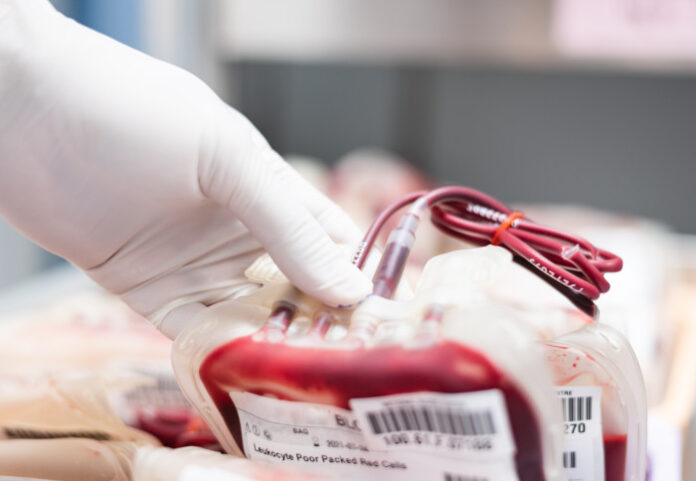For hospitals and medical centers, it is essential to have blood bag labels that are reliable and secure. These labels are used to help with patient identification, ensuring that the right patient receives the right type of blood.
But how do you know what label is the best for your hospital or medical center? In this article, we will discuss the different types of blood bag labels and how they differ from one another. We will also provide tips on how to select the right label for your needs.
Types of Blood Bag Labels
Blood bag labels come in a variety of shapes, sizes, and materials. The most common types of labels are paper, vinyl, thermal-transfer printed, and RFID labels. Paper labels are usually printed using a laser or inkjet printer on adhesive paper stock. Vinyl labels are made from durable plastic materials that can withstand repeated exposure to fluids such as alcohol or saline solutions. Thermal-transfer printed labels are printed using an electronic thermal printer and require special ribbons for printing on plastic surfaces. Finally, RFID (Radio Frequency Identification) tags contain embedded microchips which allow them to store data about a patient’s blood type and other important information about their health history.
Durability
When selecting blood bag labels for your medical facility, it’s important to consider its durability. Vinyl and RFID tags are more resistant to wear and tear than paper or thermal-transfer printed labels because they can withstand repeated exposure to fluids such as alcohol or saline solutions without becoming worn or faded over time. Additionally, vinyl labels offer better adhesion than paper or thermal-transfer printed versions since they can stick onto plastic surfaces better than paper or thermal-transfer prints can adhere to metal surfaces.
Cost Effectiveness
Another factor to consider when selecting a blood bag label is cost-effectiveness. Paper labels tend to be the most economical option since they don’t require any additional equipment or supplies beyond what you would need for regular printing operations in your office environment (e.g., laser printers).
Vinyl labels require more expensive equipment such as hot stamping machines which may not be feasible if you’re looking for an inexpensive solution for labeling blood bags at your facility.
Thermal-transfer prints offer some cost savings over vinyl since they don’t require additional equipment but may still be more expensive than paper due to their use of specialized ribbons which must be purchased separately from the printer itself.
Finally, RFID tags tend to be the most expensive option since each tag contains an embedded microchip that must be programmed with specific information about a patient’s health history before being attached to their blood bag—however, this added security may prove invaluable in certain situations where accuracy is key (e.g., inpatient care).
When you’re in the hospital, it’s important to know that the blood you’re receiving is safe. That’s why it’s important to pay attention to the labels on blood bags.
Here are some of the best characteristics to look for:
– The label should be easy to read and understand.
– It should include the name of the donor, the type of blood, and the expiration date.
– The label should be free of any cracks or tears.
– It should be securely affixed to the bag.
By following these tips, you can be sure that you’re getting the safest, most reliable blood possible.
Wrapping Up
Making sure that patients receive the correct type of blood is essential in any healthcare setting—and having reliable and secure blood bag labeling systems is key in achieving this goal. Ultimately though it’s important that whichever system you choose meets both your needs as well as those of your patients so take some time when researching different options before making a decision! Good luck!
Read Also
- Transforming Patient Care with Professional Healthcare Transcription ServicesIn today’s fast-paced healthcare environment, the need for precise and timely documentation cannot be overstated. Accurate documentation is not merely an ancillary task; it is a core element of delivering high-quality patient care. The ability to maintain compliance with regulations, enhance operational efficiency, and ensure the integrity of patient records has never been more critical.… Read more: Transforming Patient Care with Professional Healthcare Transcription Services
- Essential Steps to Launch Your Own Optometry PracticeLaunching your own optometry practice can be a thrilling and fulfilling journey. However, it requires careful planning, dedication, and an understanding of what it takes to succeed. With the growth in demand for eye care, more and more individuals are seeking to start their own practices. But how do you get there? This guide walks… Read more: Essential Steps to Launch Your Own Optometry Practice
- Compounding Pharmacy: Personalized Medication SolutionsA compounding pharmacy plays a vital role in modern healthcare by providing customized medications tailored to the specific needs of individual patients. Unlike mass-produced drugs manufactured by pharmaceutical companies, compounded medications are prepared by licensed pharmacists who carefully combine, adjust, or modify ingredients to create a formulation that best suits a patient’s unique medical requirements.… Read more: Compounding Pharmacy: Personalized Medication Solutions
- The Best Business Decision a Surgeon Ever Made: Ordering a Medical Equipment AppraisalMost surgeons don’t go into medicine because they love spreadsheets, valuations, or negotiating buy-ins. They go into medicine because they want to operate, treat patients, and build something meaningful over time. For one surgeon, that mindset worked perfectly, until the day another surgeon decided to buy into his practice. That moment exposed a problem he… Read more: The Best Business Decision a Surgeon Ever Made: Ordering a Medical Equipment Appraisal
- Creative Approaches to Alleviating Healthcare Staff ShortagesHospitals and clinics are facing staff shortages, which makes it harder to take care of patients well. Finding simple and useful solutions is very important. Easy changes like flexible work hours, good training, and chances to grow can help staff stay happy. Technology, like online doctor visits and helpful tools, can make work easier. Smart… Read more: Creative Approaches to Alleviating Healthcare Staff Shortages






